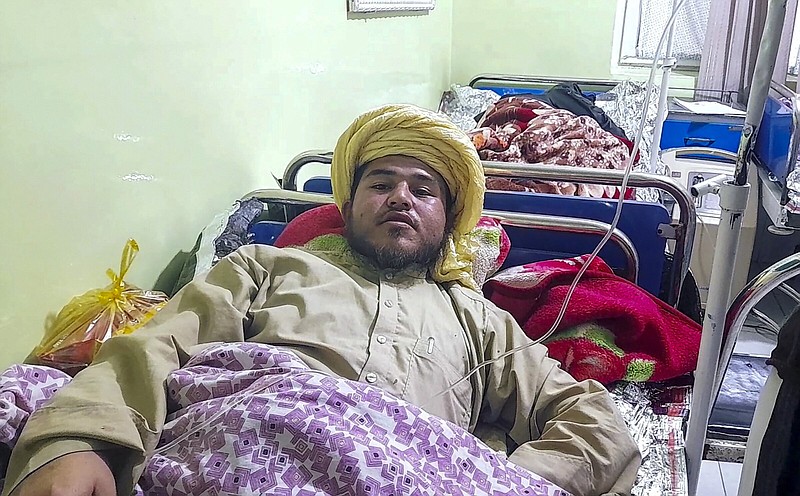KABUL -- A midday bombing at a religious school for boys in the northern Samangan province of Afghanistan on Wednesday left at least 10 students dead and scores injured, government officials said.
"The blast at noon caused 10 deaths and an unknown number of injuries. Our security and intelligence forces are trying to find authors of this attack," a spokesman for the Interior Ministry, Abdul Nafi Takor, said in an online message to news outlets.
The provincial director of the Ministry of Information and Culture, Imdadullah Mohajir, said in a statement that the blast took place during a gathering of all students for midday prayers at the Al Jihad madrassa, in the provincial capital of Aybak. He did not say how many had been wounded or killed but said the "number may increase."
According to the website of the Etilaat Roz, a longtime Kabul newspaper now based abroad, the seminary had recently been opened by local Taliban officials in the building of a former training college for teachers.
The attacked school was one of many sites the new authorities have taken over and converted into seminaries since the supreme leader of the Taliban, Mullah Hibatulllah Ahkundzada, issued a decree last spring that there should be one Islamic college or teaching institute in every one of the 34 provinces in Afghanistan.
In June, Taliban authorities in northern Balkh province took over a private television station compound and converted it into a seminary. At its inauguration, the acting minister of education, Noorullah Munir, said there were 20,000 schools in the country but only about 1,000 madrassas.
"The struggles and fighting which the religious scholars engaged in were for making such seminaries," the governor of Balkh, Qudratullah Abu Hamza, himself a cleric, said at the ceremony.
Some Afghan news organizations criticized the government for closing the Metra television channel to install the seminary in Balkh, and called on the authorities to reopen media outlets that had been closed after the Taliban returned to power. The teaching college in Aybak has reportedly been permanently closed. The new seminaries are reported to provide free tuition and living costs for nonlocal students.
The members of the Taliban movement that first took power in 1996 in Kabul, and then ruled most of Afghanistan for five years, were the products of religious seminary training, particularly in northwest Pakistan. Their fiercest opponents came from northern Afghanistan, a region where Taliban authorities are now focusing their efforts on to train new acolytes.
Reports that the blast was carried out by the Islamic State group could not be confirmed, but the attack was similar to others claimed by the extremist group in the past. The Islamic State group's affiliate in Afghanistan has claimed or been held responsible for scores of bombings at schools, seminaries, shrines and mosques in recent years, many in the capital but others in northern provinces, even after the Taliban took control of the country last year.
The extremist Sunni Muslim group has most often targeted sites in Shiite Muslim communities, in a longstanding campaign against a sect it views as heretical. Since the Sunni Taliban movement returned to power in August 2021, the Islamic State group has stepped up and widened its attacks in an effort to undermine pledges by the new de facto government to keep all Afghan citizens secure.
